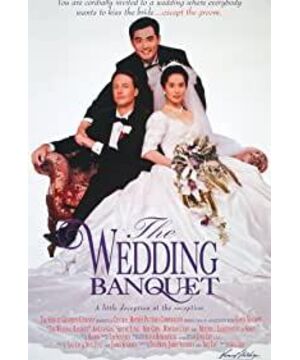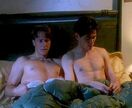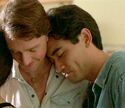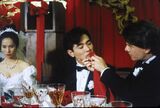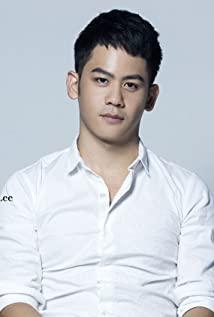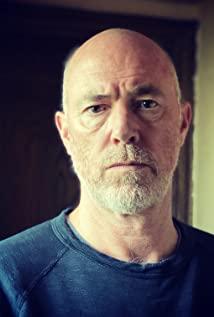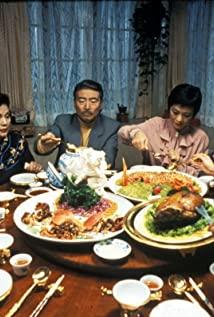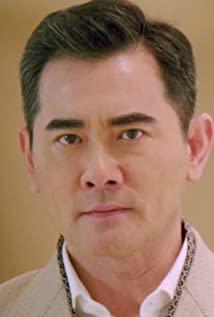I first met Ang Lee in the movie "Lust Caution". I thought he was just like Wu Yusen, a Chinese Kung Fu and Hollywood-style mixed-race director who became famous by making action movies. Watching "Lust Caution", I was amazed by the ignorance of the film's delicateness and tension from beginning to end. Re-acquainted with Ang Lee, last year’s "Life of Pi". The lights came on and the Sanskrit sounds accompanied me. I stared at the rolling subtitles for a long time, immersed in Pi's story and aftertaste for a long time. Later, when the second brush, the Blu-ray production special was released, I saw Li Ang’s interpretation of Pi, the discussion of human nature and beliefs, and his sincerity and humility from the bottom of his heart. I think I'm a little in love with this foolish man who is clumsy and late bloomer. Turning out a variety of interviews, HBO, Moviepilot, DGA, Lu Yu, Yang Lan, Chen Wenqian, Long Yingtai, almost without exception mentioned Li Ang’s first three films about his father, namely Father Three. The parts, and their influence on the future creation. After reading it in one breath, I found that my chest was swollen, but I didn't know where to start, so I got Li Ang's autobiography again. Calm down, let go, and record the father's trilogy and director Lee Ang in my eyes. In his old age, I was so quiet, I didn't care about everything. I have always believed that the soul of a movie is the script. After watching my father's trilogy, I saw its script and the soul behind it. As the premiere of Ang Lee, "Pushing Hands" showed a simple side, such as the guest appearance of the eldest son Li Han, which is not like a mixed blood at all. The production of such a small cost is naturally crude, but it highlights the power of the script. Almost entirely relying on the development of the plot and the contradiction, it has built the backbone of the film. Just the cooking scene on the first night and a few talking scenes fully explained the different lifestyles of the father and Martha each represented; another example is the chat at the dinner table, a few words, and the embarrassment of living together for three generations. The tiredness of mediating from the language barrier is naturally exposed to the audience. Movies are an extension of drama, and the core of drama is conflict. Ang Lee knows this well. Conflicts between Eastern and Western cultures, such as diet, parenting, and lifestyle; conflicts between the generational gap between fathers and sons, such as the tone of dialogue and the style of doing things; the conflicts that marriage, filial piety, and teaching children are difficult to weigh; the conflicts between fathers against aging and rivaling the years are all Confessed on the screen without embellishment. Ang Lee is very clever. His films hardly involve subjective intervention, but reveal the most real, cruel, and most internal contradictions, and let the viewers think and judge. And cleverly encapsulating all the elements and expressions into a cultural carrier such as Tai Chi Push Hands is an important reason why the script of Push Hands can win the award. Lao Zhu, together with the traditional Confucian culture and Chinese father he represented, and destiny pushed his hands, eventually became uncomfortable, put down his figure and succumbed to his arrangement, which was embarrassing. The director's expression on this is also cleverly hidden in the words that Lao Zhu sent to Mrs. Chen: In his old age, he is only quiet, and he doesn't care about everything. There is no long-term strategy for self-care, and the empty knowledge returns to the old forest. The wind blows off the belt, and Shan Yuezhao plays the piano. The king asks the poor, and the fisherman's song enters Pushen. The green hills are not old, but they have white heads; the green waters are worry-free, and their faces are wrinkled by the wind. The same Ang Lee script, the same small production, the same James and a good machine, except for the hard work of the prestigious lines, "The Wedding Banquet" is no longer jerky as a newcomer. On the contrary, Ang Lee draws on the experience of "Pushing Hands" to outline more characters and elements, which also makes the movie richer and fuller. The re-excavation of the Chinese-style father, filial piety, and the way of being in the world made "The Wedding Banquet" more successful than ever. The opening scene of Mingyi's same-sex scene is very eye-catching, but as the plot deepens, the movie seems to be more than drinking. It wasn't until Gao's father made his first appearance to his daughter-in-law that he could live and raise him, and he suddenly realized that this is just between mountains and rivers, and that he was talking about Confucian culture. Li An’s unique appearance in person is even more in one phrase: you’re witnessing the result of 5000 years’ sexual suppression. Furthermore, a few bridges where Gao's father is resting on a recliner can be said to be an in-depth metaphor for the image of a traditional Chinese father. The son repeatedly touched his nose, as if full of temptation and rebellion against this thousand-year-old culture. And every time there was a false alarm, we saw Li Ang’s attitude and his handling of contradictions clearly in the process of his father’s repeated defeats of the sickness nightmare. The surface is peaceful, but the heart is ups and downs; it seems that there is no right or wrong, but everyone lives hard and fetters; keeps secret about the bed brother, but regards the inheritance of the family as the first-class filial piety. At the sunset by the sea, Gao’s father’s affectionate saying "I don't Asking for perfection, as he himself said, is part of his character. Eating men and women, human desires. "Diet for Men and Women" is the most mature and cute work in the trilogy. At first glance, it seems that I can't grasp a clear context, and the multi-line narrative is also a little messy. It is only after half of the movie that it is gradually realized that men and women in diet are talking about desire. The desire on the table is food, and the desire under the table is sex, and this table is an allusion to Chinese culture and is the source of depression, confusion, and suspicion. From this perspective, it can be regarded as the inheritance of a trilogy. The death of her mother brought ripples to the originally harmonious family life, and everyone tried to fill the vacancy left by her. The daughter was eager to enter the father's heart, and the father took on the entrustment of taking care of the three sisters. In this kind of position exchange, the family members each experience the sourness. As the plot unfolds, the father repeatedly hesitated to speak, and the daughters were withdrawn from home one by one. Liang Mu and Jin Rong had different dreams at the same table, and the movie became more and more vigorous. When everyone thought that Mr. Zhu and Mr. Liang were going to tie the knot, Ang Lee gave an O. Henry-style orgasm. This seemingly abrupt ending is actually the Chinese rhythm he wants to express—desire is suppressed to a certain extent. The degree of explosion, and then find the balance. Carefully sorted out, each role has its own characteristics and references. The eldest sister Jiazhen has long seen the fate of her father's life by her side. She shoulders the responsibility of filial piety, and has never felt the true meaning of love. The pressure of reality and deep inferiority compelled her to give herself an excuse to deceive herself. And this kind of evasion must eventually be released, so there is a catharsis on the school podium. Remembering that a wise man once said, "If you really love someone, you must let him get what he loves." Maybe the timely appearance of Teacher Zhou is indeed Jiazhen's best salvation. At the end of the film, Jia Qian asks her elder sister that he is not a Christian, Jia Zhen categorically says, "He will be", and when the final chapter of the movie ode to joy, Jia Zhen's desires are satisfied, and the knot in her heart is completely resolved. Jia Qian, played by Wu Qianlian, is an exploration of the fate of women in the new era. It has a glorious and successful side, and it is inevitable that there is suffering and loneliness behind it. As the two most important roles in the drama, the emotional changes of the father and daughter are also logically made. The most important clues of the whole film. The anti-purpose experience with her father since childhood has left them with a gap for many years. The kitchen has been listed as a forbidden area for Jia Qian, so every time she cooks, it is a natural way for her to vent her desires. In fact, Jia Qian has always been Zhu’s favorite daughter, clever and clever, but her rebellion, her father’s expectations, and the shadow of her childhood kept their father and daughter unable to open their hearts. When she really experienced the lies of her sister, Courageous, the relationship with her ex-husband broke down, and after feeling the impermanence of men, Jia Qian Finally accepted myself and my father. It is quite ironic that she, who had many admirers at first, finally discovered that she was the only one who was truly alone. Among the three sisters, Jianing has the least drama. She was the first to taste the forbidden fruit, just like Adam and Eve, she was the incarnation of bravery. This courage and ignorance has also become the fuse to promote the plot, as Zhu Lao said at the end, after all, "you can't wait for all the dishes to be prepared before cooking." Look at Mr. Zhu. Although he is a widower, he knows how to live and can take care of others. He can give Jinrong the arms and a sense of security. The so-called "I know what a pity is when I have a word of pity in my heart." On the contrary, revisiting all Jin Rong's shots is actually full of hints that I want to talk. The experience of a single-parent family and the baptism of divorce made Jinrong clearly aware of his desires and needs, and he was satisfied with them, with no extravagance. Another wise point of the movie is that it never explained Jin Rong and Jin Feng's father, but only provided a strong and secular Liang mother, leaving Jin Rong's lack of paternal love and Electra plot to the audience to reason and think. The ending of Liang Mu is really tragic. Jin Rong was originally her only pillar of life, but she became the last straw to crush the camel. Such irony is probably the director's deep reflection on the position of strong housewives in today's society. Having said that, the Liang Mu interpreted by Gui Yalei is really alive and sharp, showing her secular, caring, and acrimonious side to the fullest. At the end of the song, Zhu Lao looked around, Jia Zhen Jianing found his partner, Jia Qian finally walked into the kitchen, and the taste he lost after his wife’s death was finally made possible by a bowl of soup made by his mother and daughter. Recovery implies that someone has walked into his heart again. But Jia Qian, who has the best conditions and seems to be the most successful, has become the owner of this old house. Accompanied by the faint sorrow of the music, the movie came to an end with the tacit understanding of the father and daughter. "Diet Men and Women" continues the exploration of the traditional Chinese Confucian culture in the father's trilogy. What is filial piety and how to fulfill it; how the atmosphere of the family is suppressed and then exploded in the parents' and children's generations; how everyone balances their lives in suspicion, speculation and temptation; the inevitable contradiction is whether to compromise, escape, or persist Or to be patient; when dealing with complicated interpersonal relationships, how to please and how to tactfully refuse... After all, our culture emphasizes the gentleman's way, and every frame puts up a square table, no matter how turbulent the desire under the table is. It will always be a hand-to-hand talk with Yi, and it will end. The same is true of the country, and the same is true of the family. As the saying goes, every family has scriptures that are difficult to recite, probably so. Father loves Sandi, thinking of home. Throughout the trilogy, I personally like wedding banquets the most. Pushing hand is too thin, drink Eating men and women are wonderful, but they are a bit of a trace, lacking a bit of inner sincerity and charm. In any case, it is the father role played by Lang Xiong throughout, from the calmness of Tai Chi pushing hands, to the planning of wedding banquets, to the forbearance of men and women in eating and drinking. "For me, Chinese fathers are a source of pressure, sense of responsibility, self-esteem, and honor. They are a cultural representative of the feudal patriarchal society in the past." The reason why Li Ang can grasp Chinese fathers so accurately and take such detailed and profound photographs His growing up background is inseparable. In fact, the father's trilogy is a thorough deconstruction of himself and his father in life. His father and Li Ann are the eldest sons of the family, and his father moved to various middle schools in Taiwan as the principal. Coupled with his solid clan background, he is extremely strict in managing the family and teaching children. He has deep expectations of Li Ang. Ang Lee failed in the two entrance exams, and entered the art college, UIUC, and NYU director departments with the unremitting pursuit of film dreams, which went against the "decent career" that his father had expected. Ang Lee, who finished his studies, was limited by the objective status quo of the film industry. After six years of living in a vacant position, he was once discouraged. As a full-time woman and man, he had only 43 dollars left in his bank account. With the accumulation of "Pushing Hands" and "The Wedding Banquet" scripts, he started his career as a director, and since then he has been out of control. This kind of growth experience, this kind of guilty pay, gave Li Ang a deep introspection and self-analysis. The continuous digging of the heart, the in-depth exploration of human nature, and the father material provided by the family have all been condensed and condensed into the creation of the trilogy by him. "From my parents, I have seen the changes in the inheritance of the Central Plains culture in Taiwan and in me. On the one hand, I resisted with self-realization, and on the other hand, I felt guilty for not being able to pass on it." It can be said, The character of Lang Xiong in the film, the symbol he represents, is to some extent the shadow of Li An's father. Even the "Wedding Banquet" in "The Wedding Banquet" whisperingly said to Weiwei "Daughter-in-law, Gao's family" is a remake of real life. As Li Ang said, the completion of each movie is a review of one's own life, and a cleansing of the pressure and shadow of his father in his heart. His father's love for San Die finally allowed Ang Li to walk out of the haze and achieve self-salvation. And he also regarded the father's image in the trilogy from strong to weak, from upstream to conforming, and finally found the second spring of his life as the final blessing to the Chinese father. Speaking of himself, Ang Lee seems to be a naughty boy who likes to touch taboos. His childlike innocence takes him to travel across the world, from the same sex, both sexes to human divinity and animality, from the Civil War to modern science fiction, from From Eastern sophistication to Western philosophy, there is a wide range. "from Parker, Ang Lee will always be on the road of exploration with the audience. Whether it is the low-key humility during success or the forbearance and persistence during the dormant period, what remains unchanged is the tiger in Li An's chest, his perseverance and pursuit of movies, and his always approachable smile. These are the qualities that I admire the most about him. Perhaps this is also the best answer given by Ang Lee. Only if you can endure the deepest loneliness can you hear the singing of the soul. Bless you, Ang Lee, and also bless myself. Please indicate the source. Parker, Ang Lee will always be on the road of exploration with the audience. Whether it is the low-key humility during success or the forbearance and persistence during the dormant period, what remains unchanged is the tiger in Li An's chest, his perseverance and pursuit of movies, and his always approachable smile. These are the qualities that I admire the most about him. Perhaps this is also the best answer given by Ang Lee. Only if you can endure the deepest loneliness can you hear the singing of the soul. Bless you, Ang Lee, and also bless myself. Please indicate the source. Parker, Ang Lee will always be on the road of exploration with the audience. Whether it is the low-key humility during success or the forbearance and persistence during the dormant period, what remains unchanged is the tiger in Li An's chest, his perseverance and pursuit of movies, and his always approachable smile. These are the qualities that I admire the most about him. Perhaps this is also the best answer given by Ang Lee. Only if you can endure the deepest loneliness can you hear the singing of the soul. Bless you, Ang Lee, and also bless myself. Please indicate the source. Parker, Ang Lee will always be on the road of exploration with the audience. Whether it is the low-key humility during success or the forbearance and persistence during the dormant period, what remains unchanged is the tiger in Li An's chest, his perseverance and pursuit of movies, and his always approachable smile. These are the qualities that I admire the most about him. Perhaps this is also the best answer given by Ang Lee. Only if you can endure the deepest loneliness can you hear the singing of the soul. Bless you, Ang Lee, and also bless myself. Please indicate the source.
View more about The Wedding Banquet reviews


